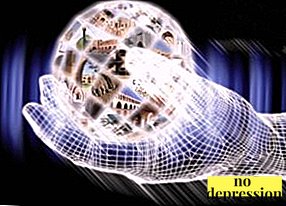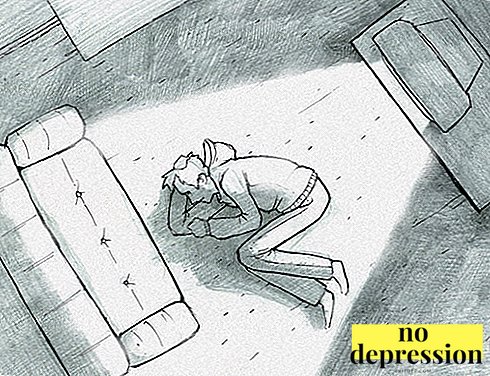The processes of memory in psychology include many aspects.
Thanks to these processes, a person not only memorizes information, but also reproduces it if necessary.
Essence and psychophysiology

Memory is a form of mental reflection, which is characterized by consolidating and preserving the experience gained.
This is an important ability, without which the development of the individual cannot take place.
He gets knowledge that helps him throughout his life.
Memory is the basis of mental activityis associated with the nervous system. Without it, it will not be possible to study consciousness, thinking. Memory is closely related to the mental and physical state of the individual.
When memory deteriorates, performance and well-being are reduced. This is a multi-level mechanism that does not cease to develop, is always open to the knowledge of the world, helps a person to learn.
Experts are confident that memory development is affected human physical condition. With rapid fatigue and poor feeling, it becomes difficult to remember new information.
It is proved that new information is better remembered after a long sleep, rest, when the body is ready for work, is active.
Facts that evoke positive emotions will succeed. remember quickly and easily. If a person treats certain information negatively, it will be very difficult to remember it.
Relationship with the personality and psyche of man

The mechanisms of memory associated with the person's personality.
If the information is important to the individual, he will try to save her. Memory is associated with the interests of the individual.
What causes a positive color will be fully studied, and the information obtained will be permanently fixed in the memory.
The relationship of memory and personality traits is not one-sided. In children with good memory learning becomes more effective. They excel in school, university, and then in their profession.
Become first-class experts. Memory helps them achieve success. New information is remembered easily.
However, the effect of memory on a person is not always positive. Knowing a lot of facts, having a lot of information, a person begins to perceive things around him stereotypically.
He lost the creative makings. Instead fantasy, the submission he connects the facts from memory.
If the memory deteriorates or is completely lost, it will also affect the personality. In various forms of amnesia man loses past experienceHe forgets that he likes his hobbies. He loses his "I". Memory helps a person to remain himself.
Memory in the system of cognitive activity

Memory helps a person learn this world throughout life.
Thanks to memory, one can study activities of interest, expanding mental abilities, enhancing intelligence.
Intellect is the highest form of cognitive activity. Relationships are established between information and images, resulting in new knowledge about surrounding objects.
In the process of learning a person uses three types of memory. Connects first sensory memorywhich stores information for 20 seconds. Most often, it occurs unconsciously, remembering information about the world.
If the experience was important and emotionally colored, connect RAM. She can store information for several days.
When new facts are learned at the highest level, they become part of a long-term memory that can store information indefinitely.
The most important knowledge and experience of man keeps all life.
What is common with perception and thinking?

Previously obtained information helps the individual to think, create logical chains.
Thinking refers to the mental process, aimed at the opening of the deep connections contained in objective reality.
It occurs in the process of practical activity, when a person starts to rememberhow he performed a particular task earlier, how successful the experience was. He thinks, tries to cope with the task, using all the information that he owns.
Thinking is closely intertwined with memory. In the process of memorizing new information, thinking is connected. It helps be aware of what has been read. If thinking did not connect, a person would learn new facts, but did not understand them.
With memory is connected and perception. Through perception, the world around is also known.
Perceptions do not disappear without a trace. They are saved and replayed when necessary. Memory permits to fix perceptions as well.
Perception of reality - an individual process. Each individual has his own reflection of reality. Based on his knowledge and experience, he betrays a certain significance to what is happening.
To perceptions were complete, connect memories. Memory reproduces certain situations from the past. it affects human behavior in reality.

For example, if in the past a man met a dangerous animal in the forest and miraculously disappeared from it, the next time he would not go there, and if he did, he would carefully avoid the area where he had met the animal.
He will be afraid of the forest. The perception of this place will be negative.
The other person, who did not go to the forest before, will not be afraid of this place. He will perceive the forest in a positive way, because no negative experienceassociated with the forest.
Based on the experienced, memories, a person perceives what is happening in one way or another.
Memory stores emotionally-colored situations to preserve the security of a person.
How does she regulate speech and behavior?
Memory regulates human speech. He reproduces information that he remembers by speaking or writing. It is closely associated with thinking, is a way to exchange information between individuals.
If a student has learned certain material for the exam, he will express it with the help of speech.

Check differently, whether he remembers the material or not, will not work.
At this point, one aspect of the memory is used - reproduction of previously received information.
Memory has an effect on human behavior. Based on the recollections of the previously acquired experience builds a model of behavior.
For example, if he had previously received a negative experience in communicating with this or that person, he would avoid him, showing with his whole appearance that communication was unpleasant to him.
Another example, a child immediately became friends with classmates. By contacting them, he received only positive experience. He will behave openly and friendly.
Memories will tell him that these people will not harm, so you can behave affably, not nervous.
How does it work?
How does our memory work? Memory is a complex mechanism whose work still under study. In the twenty-first century, experiments and observations related to memory continue.
The whole process of its work can be represented as a simple algorithm: memorization-preservation-reproduction.
During memorization, the information received is transmitted from one nerve cell to another. Such cells are called neurons. This process is carried out in the cerebral cortex.
Then from these impulses are created neural connections. This is a kind of way to extract facts in the future, that is, recollections.

The duration of storage of information is affected human attention.
If the information has ceased to have significance for a person, he will forget it.
The process of forgetting is needed by the body, because thanks to it it manages to relieve the central nervous system from lost relevance and importance of memoriesstress
The main aspects are summarized in the table.
The memory components are:
| Memory and her | Definition |
| Value | The ability to store information, reproduce if necessary. Thanks to memory, a person knows the world, leads a professional activity. It influences a person’s decision making. |
| Abilities | The memory is able to store information for an unlimited time. The amount of information stored is incredibly large. It contains the facts that start from childhood, accumulating in the process of human maturation. |
| Properties | Memory properties include volume, accuracy, reproduction, memory speed, duration, and noise immunity. Scientists have proven that most people use only 5% of their memory. Information is stored in the smallest detail, ensuring accuracy. The facts are reproduced simply, without undue action. You can recall the bright moments from the distant past. The speed of memorization is an individual aspect. Someone's speed is high, and someone's low. It all depends on how strong the memory is. If desired, it can be strengthened. Duration of information storage is also individual. One person can remember all the names of classmates after 20, 30 years, and someone forgets them in 2-3 years. By strengthening the memory, a person can increase the storage time of various facts. Immunity is characterized by the fact that a person can learn a new material in a noisy place, if it concentrates. |
| Phenomena | The ability to memorize information is given arbitrarily and involuntarily. In the first case, the person makes efforts to memorize, but in the second there is not. |
| Functions | Memory functions: memorize, store, play and forget information. |
| Mechanisms | The mechanisms of memory include the formation of neural connections, the development of personality traits, the ability to perceive reality based on past experience. |
| Processes | The processes include memorization, storage, reproduction of information. |
| Effects | Associations, awareness, emotional coloring of the event. |
| Phenomena | The connection between reflexes and behavior, the reproduction is not all the information, but only that which is needed. It is surprising that only a small part of all the accumulated information that is needed at a particular moment is reproduced. |
TO physiological (neurophysiological) mechanisms Memory refers the process when information is memorized, transmitted through neuronal cells in the brain, forming connections.
Mnemic memory processes combine several functions: the ability to memorize, store and reproduce, as well as forget information.
Human memory is a multifaceted mechanism that includes many elements. Information is not just remembered, but reproduced exactly. This is an amazing ability of a person, which makes it possible to learn, to know this world.
Processes and types of memory:



